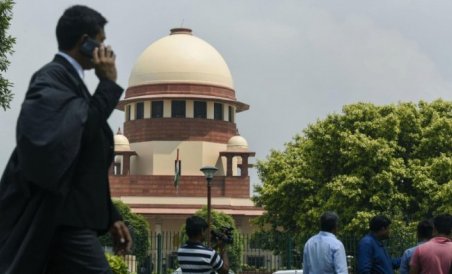Bangalore, 20/5: The Supreme Court on Friday said the state government cannot run the local corporation and an elected body has to be in place, as it gave eight weeks time to the Karnataka government to complete the exercise for delimitation of wards and determination of OBC reservation in BBMP.
A bench of Justices A M Khanwilkar and Jamshed Burjor Pardiwala recorded a statement by Solicitor General Tushar Mehta, appearing for the state government, that the entire exercise as per the new 2020 Act would be completed within eight weeks.
Notably, the term of the Bruhat Bengaluru Mahanagara Palike (BBMP) expired on September 10, 2019. A new law was passed by the state Assembly in 2020 which came into effect in January 2021, increasing the number of wards in the city corporation.
Mehta said the process of delimitation is at the final stage and the final notification will be issued shortly. He also submitted the exercise for reservation of wards would also be completed within eight weeks.
“Why should elections wait? Government can’t run corporation, an elected body has to be formed,” the bench said, asking the state government to adhere to the assurance of completing the exercise within the given time frame.
The bench said the State Election Commission can initiate the process within a week thereafter for holding the polls expeditiously.
On Friday, after hearing advocate Rohit Sharma on behalf of a private party, the top court also vacated its stay on elections of the Vijaypura local body and directed that the timelines issued in the BBMP matter should be observed in this case as well.
On December 18, 2020, the top court suspended the operation of the High Court order of December 4, 2020, asking the SEC to hold the elections in BBMP within six weeks.
The High Court ordered conducting polls in 198 wards instead of 243 as mandated under the new law, the Karnataka Municipal Corporation (Amendment) Act, 2020, passed by the state government to govern Bengaluru.
In its plea against the High Court’s order, the state government claimed the new law was passed to increase the seats for councillors from 198 to 243 wards in order to give due representation to Scheduled Castes and other marginalised communities in the municipal council of a large and growing city like Bengaluru. It also claimed the SEC had no authority to question the validly enacted legislation by a writ petition.


Comments are closed.